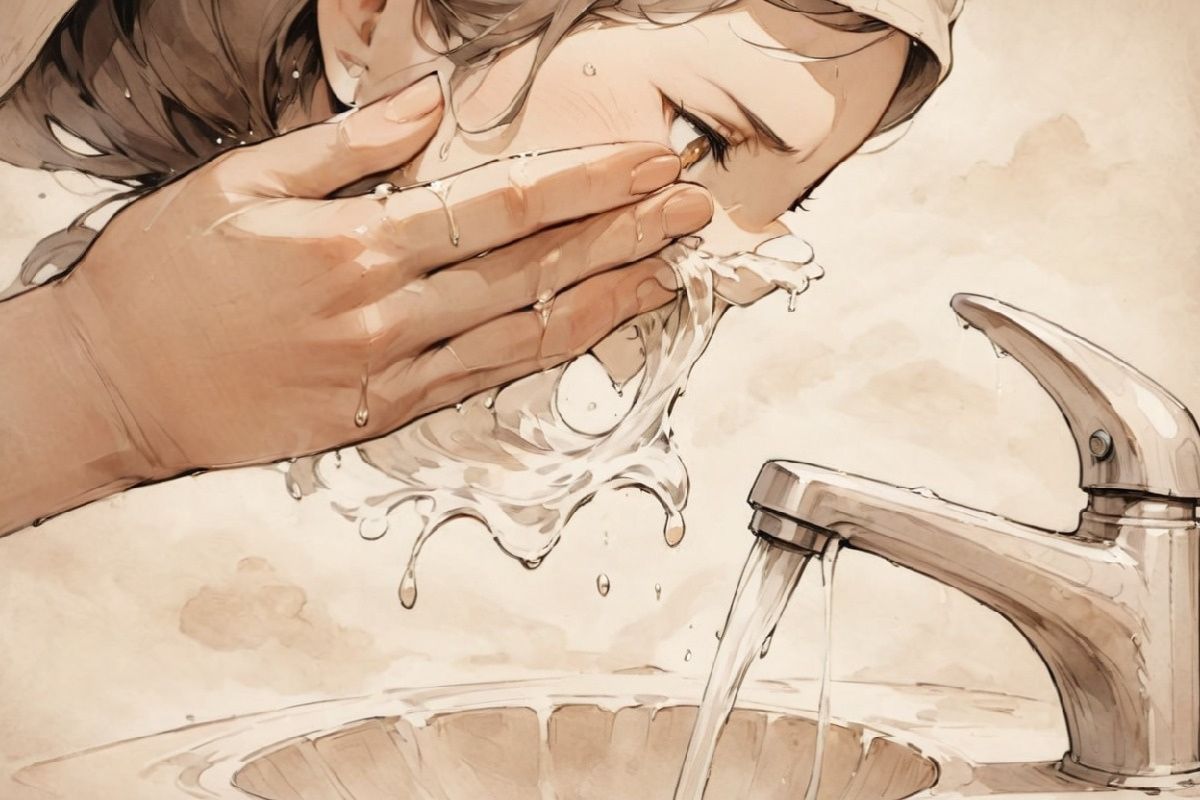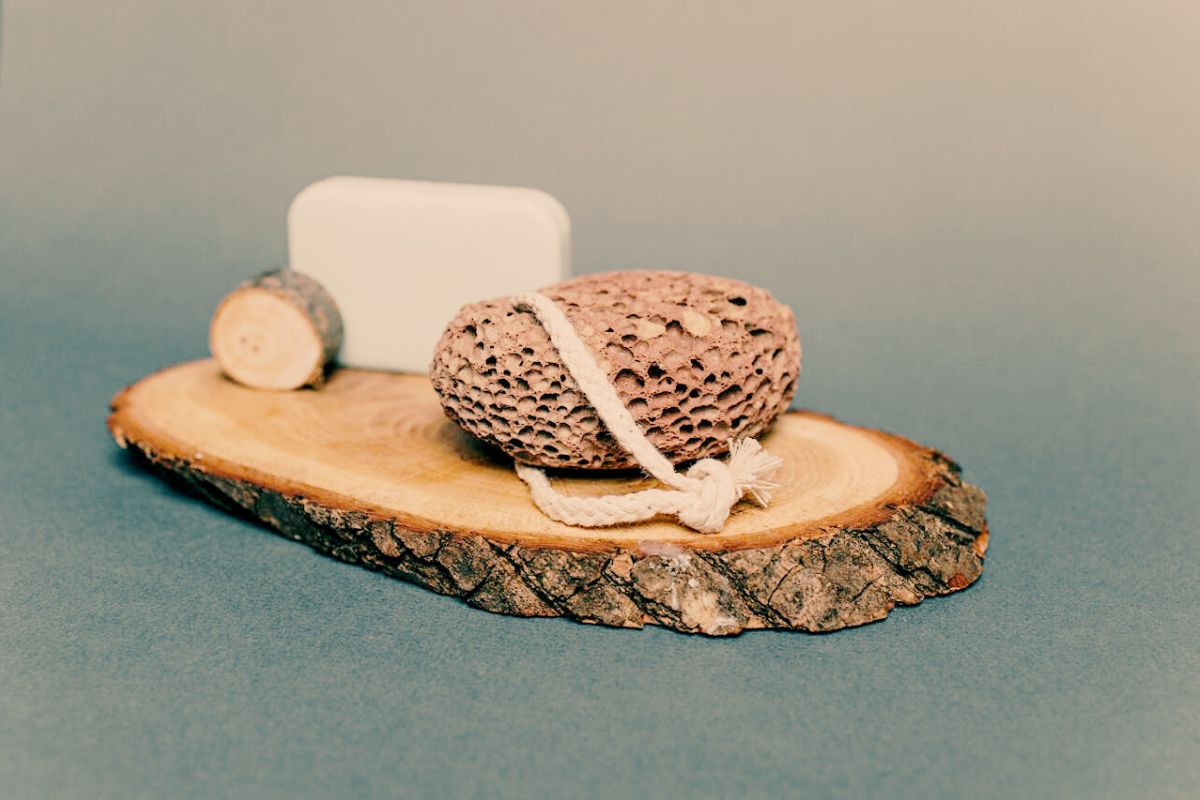Discover the versatile uses and health benefits of coconut oil for beauty and wellness. Explore how it can enhance your daily routine—read more now!
How Often Should You Wash Your Face for Healthy, Glowing Skin?

How Often Should You Wash Your Face?
How often you wash your face depends on your skin type, but you should wash your face at least twice a day.
Washing your face is part of your daily skincare routine. Overcleansing can be bad, but skipping the twice-a-day rule can lead to many skincare problems, from clogged pores to acne, too much oil, puffy skin, and even more fine lines and wrinkles.
So, how often should you wash your face? Most of us must wash our face twice daily, in the morning and at night, to have a clear complexion. How often you should wash your face depends on your lifestyle and/or skin type. For example, you may need to wash more often if you have:
-
Dry or sensitive skin
-
Irritated skin
-
Acne breakouts or acne-prone skin
Or if you:
-
Wear makeup
-
Workout often
-
Work in a coal mine
You must consider the skin’s natural oils and how skin types react to cleansing. For those with oily skin, a gentle cleanser with active ingredients like salicylic acid can help manage excess oil and prevent clogged pores. A hydrating face wash with ingredients like hyaluronic acid for dry or sensitive skin can help maintain moisture, support skin hydration, and protect the skin barrier.
A dermatologist can advise you on your skin condition and lifestyle. Remember, you want to wash your face without stripping it of its natural oils. Double cleansing can be good for those who wear heavy makeup or are exposed to pollutants so all impurities are removed.
Also, consider using a cleansing oil or an oil-based cleanser in your skincare routine, especially for combination skin. This will remove makeup and dirt while maintaining the skin’s natural balance.
In the end, knowing your skin type and its needs is key to how often you should wash your face. Follow these rules to have clearer, healthier skin and avoid common mistakes like breaking out or irritating sensitive skin. Always finish with a clean towel to pat your face dry, and apply a moisturiser to lock in hydration.
Understanding Your Skin Type
Understanding your skin type is crucial in determining the best washing frequency and products for your skin. There are five main skin types: normal, dry, oily, combination, and sensitive. Normal skin is balanced and neither too oily nor too dry. Dry skin tends to feel tight and flaky, while oily skin is prone to blackheads and acne. Combination skin is a mix of oily and dry skin, with oily areas typically found on the T-zone (forehead, nose, and chin). Sensitive skin is easily irritated and may react to particular products or ingredients.
Knowing your skin type helps you choose the right gentle cleanser and skincare routine. For instance, if you have oily skin, you might need a cleanser with salicylic acid to manage excess oil. On the other hand, if you have dry skin, a hydrating cleanser with hyaluronic acid can help maintain moisture. Combination skin requires a balanced approach, using different products for oily and dry areas. Sensitive skin needs extra care with fragrance-free and hypoallergenic products to avoid irritation.

The Ideal Washing Frequency
The ideal washing frequency depends on your skin type. For normal skin, washing twice a day (morning and night) is recommended. For dry or sensitive skin, cleaning once a day at night may be sufficient, as over-washing can strip the skin of natural oils. For oily skin, washing twice daily can help control oil production and prevent acne. For combination skin, washing twice a day, with a gentle cleanser on the dry areas and a foaming cleanser on the oily areas, can help balance the skin.
It’s all about finding the right balance. Overwashing can lead to dry or irritated skin, while underwashing can cause clogged pores and breakouts. By understanding your skin type and adjusting your face wash routine, you can maintain healthy, glowing skin.
The Importance of Washing Your Face
Washing your face is an essential step in any skincare routine. It helps remove dirt, oil, and makeup that can clog pores and cause acne. Washing your face also helps to:
-
Remove bacteria and other microorganisms that can cause infections
-
Prevent the buildup of dead skin cells, which can lead to dull, flaky skin
-
Improve skin texture and tone
-
Enhance the effectiveness of other skincare products
By incorporating regular face washing into your skincare routine, you can keep your skin clean, clear, and ready to absorb the benefits of other products you use.
How To Wash Your Face Daily
We see ads every day telling us that “cosmetic and clinical research”, “a board-certified dermatologist”, and other “skin care experts” have discovered the new “miracle solution” for Aunty Dorothy’s dry skin problem. But have they? Really? It sure does boost the price.
As simple as we are, and for what it’s worth, we think using natural ingredients and simple logic is the way to go, regardless of skin type.
Below are our general rules for when and how to wash your face daily, along with specific recommendations for each skin type.
How to Wash Your Face
Washing your face correctly is all about using the right products and techniques. Here’s how:
-
Use a face soap or gentle cleanser for your skin type
-
Wet your face with warm water
-
Apply the cleanser to your face in a circular motion, avoiding the delicate skin around your eyes
-
Rinse your face with warm water
-
Pat dry with a clean towel
-
Apply toner and moisturiser to balance and hydrate your skin
Using a gentle cleanser removes impurities without stripping your skin of its natural oils. Follow these steps to have a healthy skin barrier and great skin.
Morning Cleanse: Wash Your Face First
During your morning shower, you should wash your face with gentle cleansers that will remove makeup and any pore-clogging oil that has accumulated overnight. If you have dry skin, follow up with a daily SPF moisturiser after your morning cleanse.
Morning cleansing is essential to prepare your skin for the day ahead and maintain the skin barrier. This is good for those with oily or acne-prone skin, as it controls oil production and reduces acne breakouts. A gentle cleanser with active ingredients like glycolic acid or salicylic acid will further enhance the cleansing process by gently exfoliating the skin and unclogging pores. Incorporating antioxidants into your routine can also help protect your skin from environmental damage.
Choose a hydrating cleanser with ingredients like hyaluronic acid for dry or sensitive skin to retain moisture and prevent irritation. Remember, the morning cleanse aims to refresh your skin without stripping it of its natural oils.
Also, apply a lightweight serum or essence after cleansing for an extra layer of hydration and nourishment. This is good for combination skin types as it balances the skin’s needs.
By having a morning skincare routine, you’ll ensure your skin is ready to face environmental stressors and looks great all day.
Wash Your Face Before Bed
Before you sleep, a nighttime wash is a must, even if you’re tired and had a late night.
If you wear makeup and go to bed without washing it off, you’ll see the consequences as soon as you wake up. And think of your hubby; Does he deserve to see that in the morning?
Don’t use makeup wipes, as they can cause dry patches on your skin. Instead, use a water-based cleanser like Micellar Water, a super gentle and effective makeup remover to remove all the gunk.
Even if you don’t wear makeup, a double cleanse will wash away oil, dirt, and grime accumulated on your skin during the day.
Dry your skin with a soft, clean towel and follow up with PM moisturiser.
Nighttime cleansing is not just about removing makeup but also about preparing your skin for overnight rejuvenation. At night, your skin goes through natural repair and cleansing to ensure it can breathe and recover without the interference of dirt or impurities. A gentle cleanser with active ingredients like glycolic acid will exfoliate dead skin cells, promote cell turnover and improve skin texture.
For acne-prone skin, use a cleanser with salicylic acid to unclog pores and prevent acne breakouts. Use fragrance-free, hydrating cleansers for dry or sensitive skin to avoid irritation.
Add a nourishing serum or night cream with hyaluronic acid to lock in moisture and support skin repair. For combination skin, a lightweight moisturiser will balance oil production and keep dry areas hydrated.
By having a nighttime skincare routine, you’ll wake up to fresh, healthy-looking skin ready to face the day.
Wash Your Face After Your Workout
If you work out in the morning, you can wait to wash your face until after. But if you work out in the middle of the day, you should clean your face extra thoroughly afterwards, even if it’s just a lukewarm water rinse.
Sweat from your sweat glands mixes with bacteria and oils on your skin, clogging pores and causing breakouts. That’s why post-workout cleansing is essential. For acne-prone skin, use a gentle cleanser with salicylic acid to remove sweat and impurities thoroughly. For oily skin, a water-based cleanser will manage excess oil without over-drying.
For dry or sensitive skin, be gentle during washing. Use a hydrating cleanser with hyaluronic acid to maintain moisture balance. Pat dry your skin with a clean towel; don’t rub harshly, as this can irritate sensitive skin.
If you have dry, sensitive, or highly delicate skin, you may want to wash your face before you work out so your makeup doesn’t clog your pores as you sweat. Wash off the sweat after working out. Then, dig into your gym bag and follow up with the right moisturiser.
After a workout, use a lightweight, non-comedogenic moisturiser to replenish hydration and feel fresh. This step is crucial to maintaining the skin barrier after physical exertion. Balancing oil production and hydrating dry areas for combination skin is key, so choose a moisturiser that caters to both.
These steps will give you clear and healthy skin even with regular workouts. Remember, it’s about removing impurities without stripping your skin of its natural oils, keeping it balanced and glowy.

Face Washing For Acne-prone Skin or Oily Skin
If you have acne-prone skin, combination skin, or oily skin, you must follow the twice-a-day rule even more. A gentle cleanser or natural soap is great for washing your face without stripping away the natural oils in your skin.
And don’t skip moisturising. I know it sounds counterintuitive, but you must keep your skin moisturised. When your skin lacks moisture, it will overcompensate and produce more oil. Vicious circle, anyone?
In addition to a gentle cleanser, products with active ingredients like salicylic acid can help with acne-prone or oily skin. Salicylic acid exfoliates the skin, unclogs pores, and reduces inflammation, making it a great ingredient in acne cleansers. For combination skin, balancing the oily and dry areas is key. Use an oil-based cleanser for the oilier areas and a hydrating cleanser for the drier parts.
Also, remember that while washing your face twice a day is recommended, over-washing can disrupt the skin barrier and cause irritation. Pay attention to how your skin reacts and adjust your skincare routine accordingly. If you feel your skin is dry or irritated, reduce the frequency or switch to more hydrating products.
Using a toner in your skincare routine can also help with pH balance and remove remaining impurities after cleansing. Look for alcohol-free toners with soothing ingredients like witch hazel or aloe vera to prevent irritation.
Finally, always end your skincare routine with a non-comedogenic moisturiser to lock in hydration without clogging pores. This step is crucial to maintaining the skin barrier and preventing excessive oil production.
By following these steps and using the right products for your skin type, you can manage acne-prone or oily skin and achieve clear skin.

Washing Dry, Sensitive Skin
If you have dry or super sensitive skin, washing your face twice a day can cause irritation. So, it’s best to stick to a once-a-night cleanse. Also, use gentle cleansers for your skin.
We recommend using beauty products with unique ingredients like Snail Slime, Donkey Milk, or sulfur (for vegans). Micellar Water is also great for gentle cleansing.
Use a soft bamboo face cloth or your hands to protect the natural skin barrier and avoid further irritation.
Also, include a hydrating serum or moisturiser in your skincare routine to lock in moisture and soothe irritation. Look for products with hyaluronic acid or glycerin, which are known for their moisturising properties. These ingredients help to balance the skin’s moisture and prevent dryness.
It’s best to do a patch test before introducing any new product to your routine for super sensitive skin. This will help you identify potential irritants and avoid adverse reactions. Using fragrance-free and hypoallergenic products can also reduce the risk of irritation.
Another tip for dry, sensitive skin is to avoid using hot water when washing your face. Use lukewarm water, which is gentler on the skin and helps maintain its natural oils. After cleansing, pat your skin dry with a clean towel instead of rubbing it, which can cause further irritation.
By following these steps and being mindful of the products you use, you can care for dry, sensitive skin and have healthy, glowing skin.
“Make your skin a better place to live!”
Ken - The Natural French Soap Co.
Don’t Over or Under Wash
Overwashing can strip your skin of natural oils, leave it dry and irritated, and produce more oil. Underwashing can clog your pores and cause acne and dull skin. To avoid over or under-washing, follow these tips:
-
Wash your face twice a day unless you have dry or sensitive skin
-
Use a gentle cleanser for your skin type
-
Don’t use harsh products or exfoliate too often
-
Be gentle when washing your face; don’t scrub or rub too hard
-
Moisturise to balance and hydrate
By getting the balance right and using products for your skin type, you can clean your skin without irritating or drying it.
Choose the Right Face Cleanser For All Skin Types
Your face skin is delicate and more sensitive than the rest of your body, so you need a gentle cleanser. Most body soaps are not suitable for use from head to toe. Our Natural French Soaps are as gentle as they get. They are nature-made, chemical-free, and gentle enough to wash your face, remove your makeup, and leave your natural oils.
Not only are our soaps gentle enough for the delicate skin on your face, but you can also choose a soap that addresses your specific beauty needs and skin care routine.
When choosing the right cleanser, consider your skin type and any specific concerns you have. For example, if you have oily or acne-prone skin, you might need a cleanser with active ingredients like salicylic acid or glycolic acid. These ingredients help to exfoliate the skin, unclog pores, and prevent acne breakouts. If you have dry or sensitive skin, look for a hydrating cleanser with ingredients like hyaluronic acid or glycerin, which help to balance the skin’s moisture and soothe irritation.
For combination skin, it’s all about finding the balance between oil control and hydration. An oil-based cleanser can remove excess oil without stripping the skin of its natural moisture. Also, consider double cleansing if you wear heavy makeup or are exposed to pollution, as this will remove all impurities.
Also, pay attention to the formulation of your cleanser. If you have sensitive skin, opt for fragrance-free and hypoallergenic products to reduce the risk of irritation. Remember, you want to cleanse your skin without disrupting its natural barrier or drying it out. By choosing the right face cleanser for your skin type, you can enhance your skincare routine and have healthy, glowing skin.
You?
How often do you wash your face? Do you wash your face twice a day? Share your tips and tricks in the comments below. Remember, people who like and share this article are guaranteed a perfect complexion. True story!






